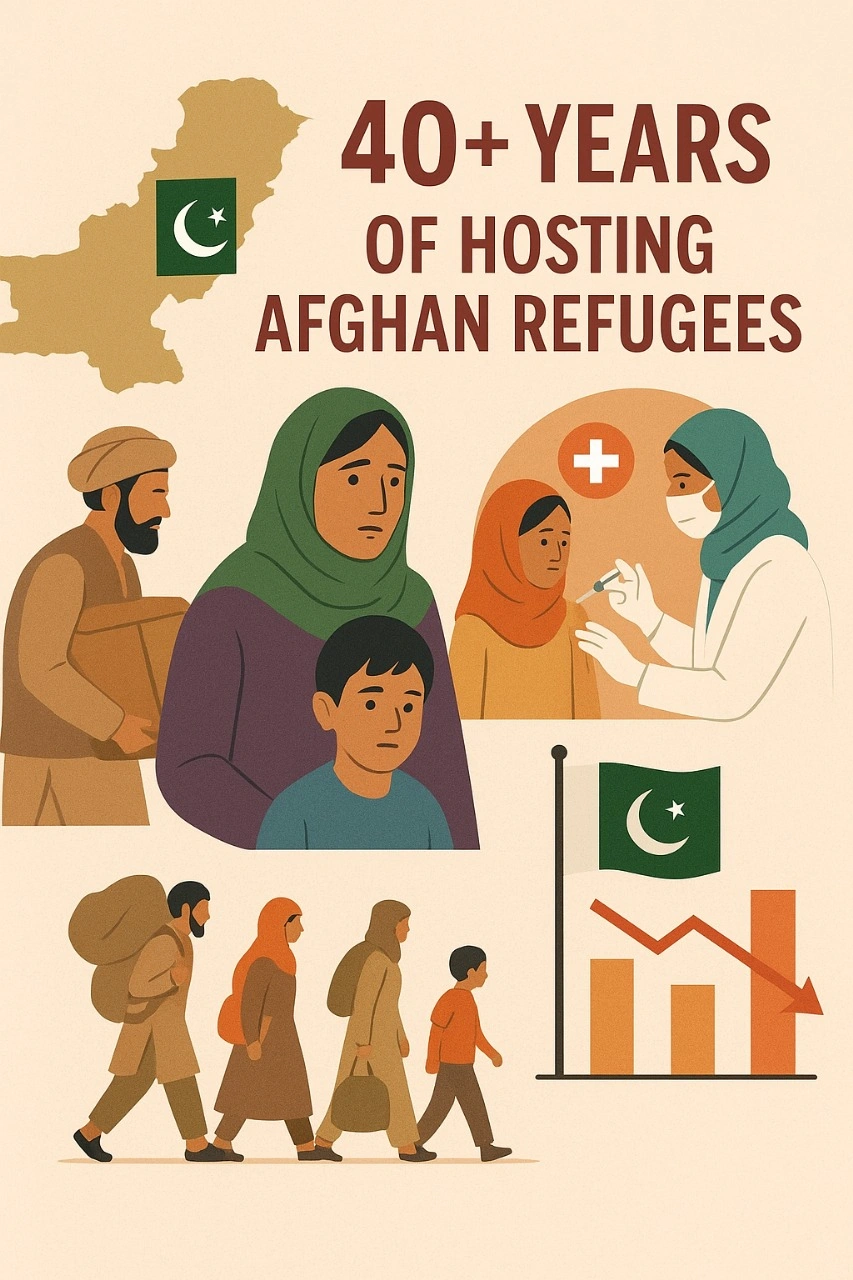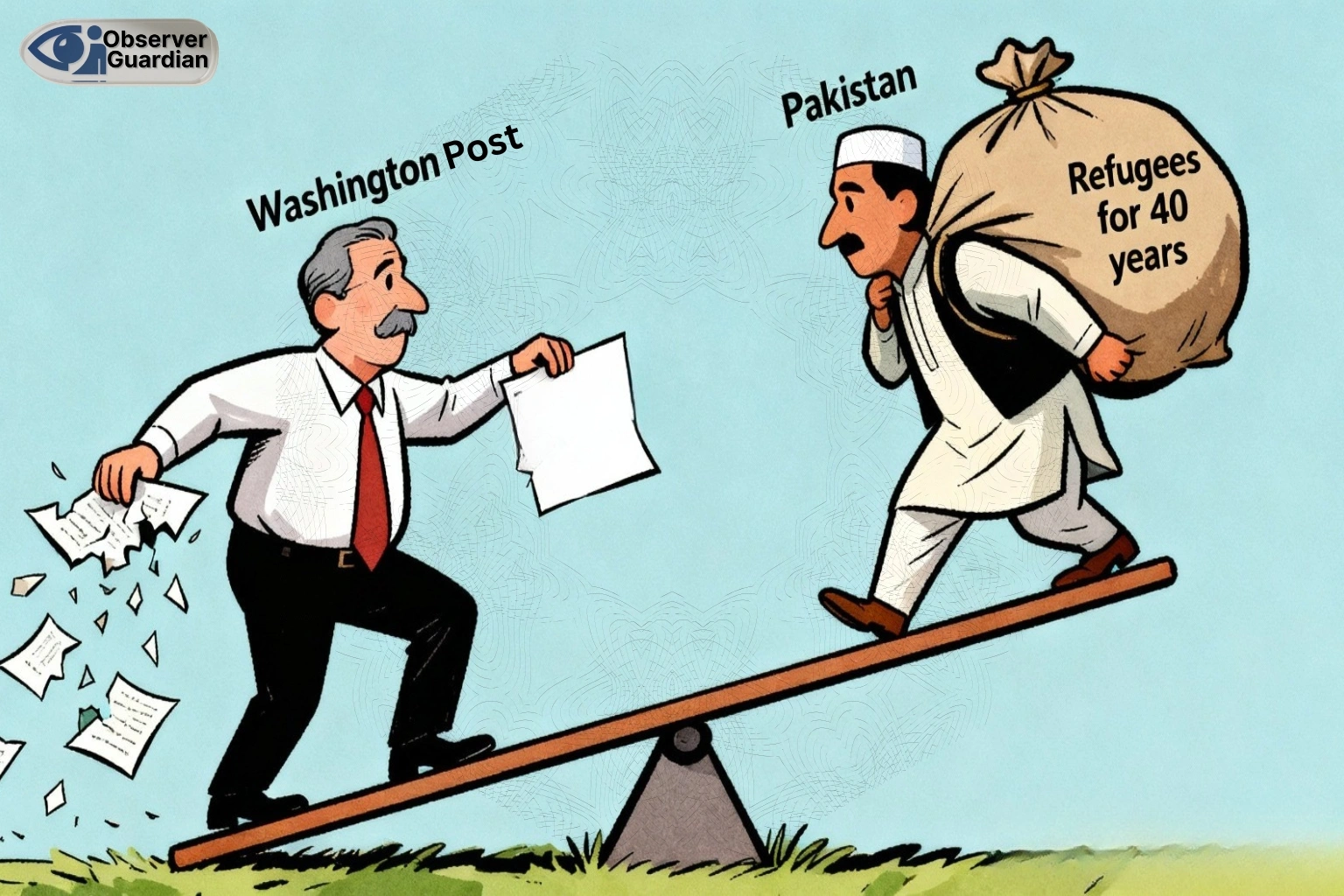A recent story in the Washington Post claims that Pakistan is deporting Afghans who fled to the US. Those included Afghans who were waiting to be resettled, including some who worked with the US military. It portrayed Pakistan as the villain in the story, and as the country responsible for the suffering of these people, after Washington froze its resettlement programs.
This ignores a much larger reality which is that, for more than forty years, Pakistan has borne the greatest human burden in the world. But the US and its allies have largely ignored it.
Since the late 1970s, when the Soviet invasion of Afghanistan drove millions of families across the border, Pakistan has been a haven for them. Not only did the country let them in, but it also helped them rebuild their lives. Schools, hospitals and neighborhoods in Khyber Pakhtunkhwa and Balochistan became home to Afghan communities, who grew up alongside Pakistanis. Even during the most difficult times, including terrorism, inflation, and political turmoil, Pakistan has never completely closed its doors.
For an economy that has always been under pressure, this was no small act of generosity.
Besides, generations of Afghans have gone to Pakistani universities, built businesses and raised children here. Many people still call it their second home. It is a human relationship in which the data does not capture, and it is easy to miss if one is writing remotely. Thus, when the Western media describes Pakistan’s refugee policies as harsh or “anti Afghan,” it often omits this context altogether.
Western responsibilities and the politics of narrative
Moreover, the recent allegations are part of a pattern that Western governments and journalists forget their role in the story. NATO or the US Afghan refugees working with the military were promised relocation and protection by Washington, not Islamabad. When the US administration changed, and refugee programs were stopped, those promises were broken. Once again, Pakistan was left to handle the result.
While the headlines talk about “deportation,” reality is more complicated. Pakistan is not detaining those Afghans who have valid documents of UNHCR. There have been administrative mistakes, and some people have faced local harassment, but the government has worked closely with the UN and international organizations. The government has tried to help Afghans in the process of resettlement, so that they should live safely and legally until they are able to leave. That aspect of the story rarely gets attention.

Financial constraints in Pakistan and the Western cold shoulder
Additionally, it is also worth remembering how little financial support Pakistan receives for all this. Its allies have spent trillions on wars, yet they have consistently underfunded refugee aid programs. Similarly, UNHCR’s budget for Pakistan has been shrinking for years. From food to schools to health care, most of the cost falls on Pakistani taxpayers. Yet, the Western media rarely mentions this part when judging Islamabad’s actions.
Some of the criticisms are politically motivated. Some Afghan migrant workers and anti-Pakistan commentators have made careers out of this narrative of “forced exile.” This plays well in Washington, where blaming Pakistan has long been an easy distraction from failed US policies in the region. Pakistan’s coordination with the UN and IOM on voluntary returns has been steady and mostly humane. Hence, the process is not perfect, but it is far from a picture of cruelty taking place abroad.
The moral basis of Pakistan’s refugee policy and the need for global justice
Furthermore, the real fraud came from the West. It went out of Afghanistan, outmanoeuvred thousands of local allies, and then dragged their feet on visa approval. This slow, tangled bureaucracy has trapped families in Pakistan who were promised a new life elsewhere. Thus, they are not Pakistan’s burden but America’s responsibility. However, when Washington hesitates, Pakistan is blamed.

Besides, there is also a deeper moral issue that keeps getting lost. The refugee crisis did not start in Pakistan. It began with decades of war, first the Soviet occupation, then the Civil War, and then the US led invasion.
Every military campaign, every foreign policy experiment, forced another wave of Afghans to flee across the border.
Hence, Pakistan did not create this chain, it tolerated it.
After all these years, it is disheartening to see that Pakistan’s role is limited to sound bites about “deportation” and “crackdown.” A fair look at history will show a different picture. It is about a country that, despite its crises, continued to be hospitable long after the world stopped paying attention. Millions of Afghans found safety in Pakistan when they had nowhere else to go. Thus, it is not a rejection.
So, if there must be a responsibility, it should not be on Islamabad. It should begin in Washington, London and Brussels with governments that made promises to Afghan partners, and then quietly backed down once the headlines died down. Pakistan, despite all its shortcomings, did everything it could, even when others moved on.
After all, Pakistan does not need applause. But it would be fair to recognize that compassion does not come from wealth or power. For more than 40 years, the country has opened its borders and homes to those fleeing conflict. It is the heritage of humanity. Thus, what needs to be said honestly, should not be distorted by politics or electoral provocations.
⚠ Disclaimer
The views and opinions expressed in this article are exclusively those of the author and do not reflect the official stance, policies, or perspectives of the Platform.







